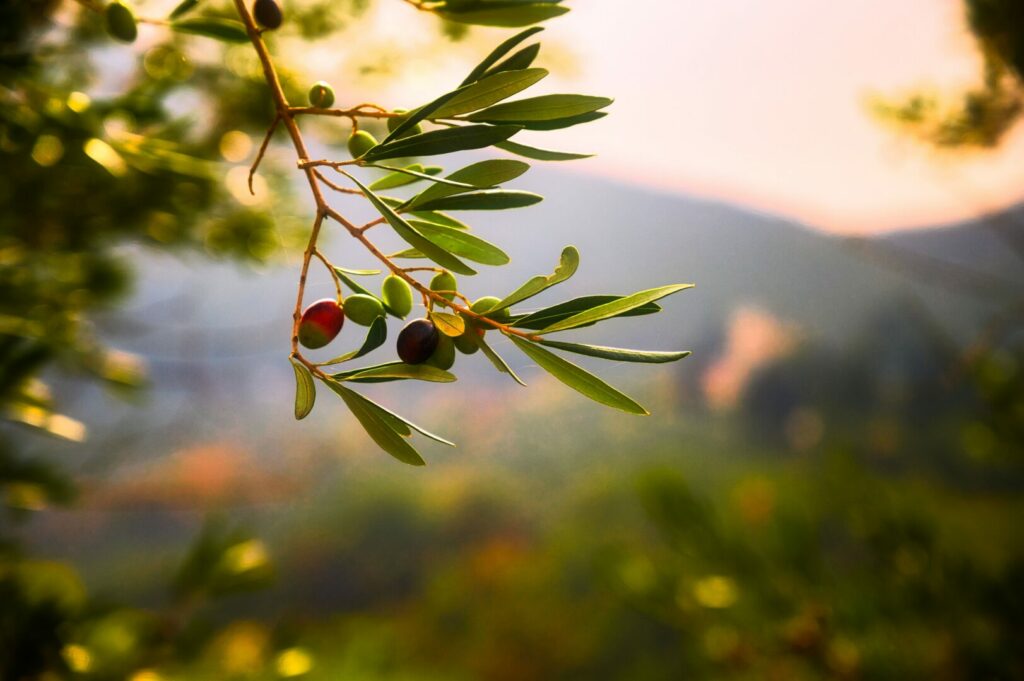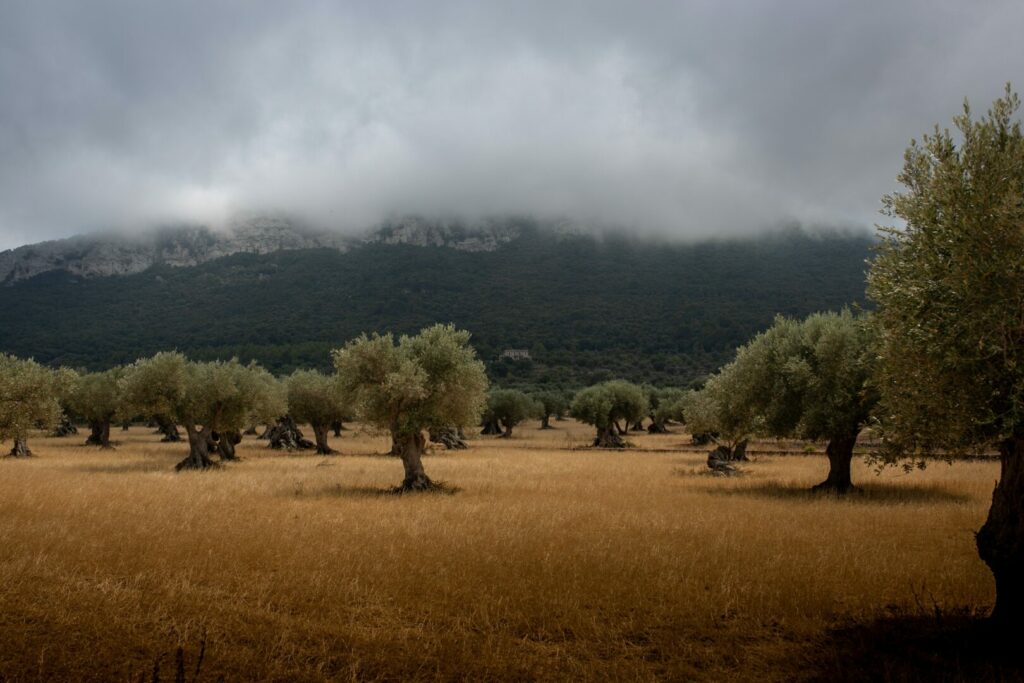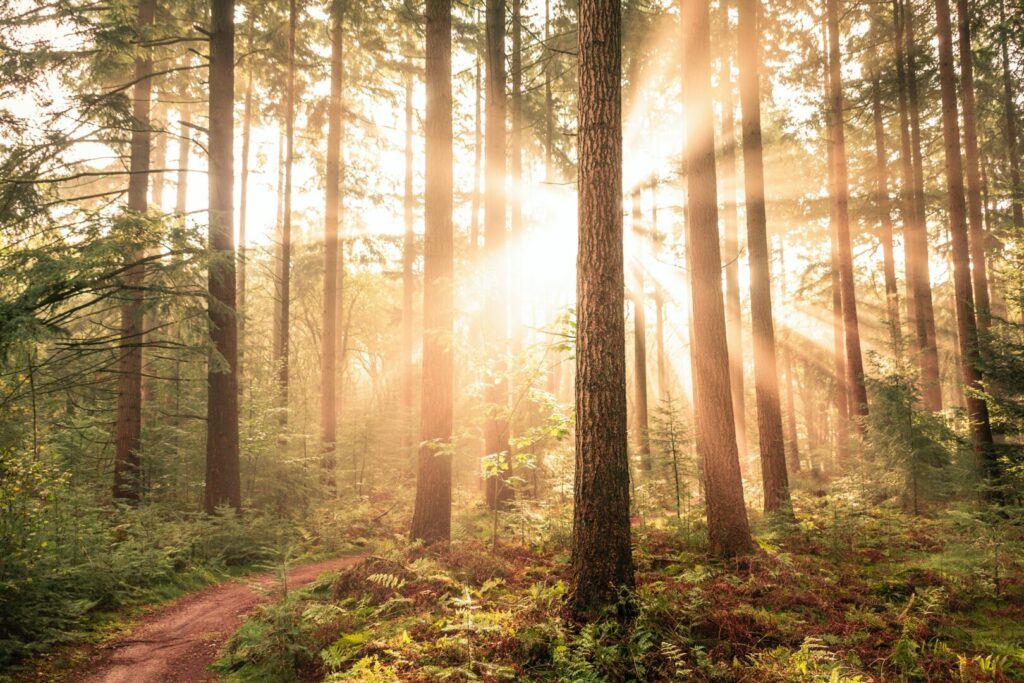Mustard seeds, lilies, grains of sand, fig trees, and sparrows. The parables through which Jesus taught were often driven by nature-based metaphors. Jesus was raised in a tradition that had a strong understanding of Earth’s connection to God. Joseph predicted crop failures and droughts through dreams given to him by God. David searched for messages from God by listening to the wind move through trees. Elijah knew God had answered his prayers when he saw a rain cloud the “size of a hand”. Each of these men looked to nature to connect to God, and it was through nature that Jesus illustrated His most powerful teachings.
As followers of Christ, when faced with a difficult problem, we sometimes ask, “What would Jesus do?” Now reflecting on the current state of our climate, I can’t help but wonder how Jesus would respond to this pressing issue. Would He believe that climate change is a serious topic? Would He call everyone to join and protect this Earth? Would Jesus be an environmentalist? I will not answer these questions for you. Instead, we’re going to look at four of Christ’s parables, paying close attention to how nature is intertwined in His teachings. Then you can decide the answers for yourself.

What is a Parable and Why Did Jesus Speak in Them?
First, let’s examine the environment of Jesus’s childhood. Jesus was from Nazareth, which sat near the Sea of Galilee. Imagine a flourishing agricultural landscape, centered in a long valley surrounded by mountains. After leaving Nazareth Jesus lived more of a vagabond lifestyle where he traveled, sharing food and homes with others and living close to the land. Both of these scenarios allowed him to develop a deep appreciation for the Earth. This appreciation came through in His teachings as many of His parables were based on nature.
The word “parable” comes from the Greek parabole, meaning “throwing alongside”. Jesus’ parables are stories that are put into a side-by-side comparison with the truth to reveal a deeper meaning.
In the Parable of the Sower, the Seed, and Soil (Matthew 13:1–23), when asked why He speaks in parables, Jesus states:
Because it has been given to you to know the mysteries of the kingdom of heaven, but to them it has not been given . . . . And in them the prophecy of Isaiah is fulfilled, which says: ‘Hearing you will hear and shall not understand, and seeing you will see and not perceive, for the heart of this people has grown dull. Their ears are hard of hearing, and their eyes they have closed, lest they should see with their eyes and hear with their ears, lest they should understand with their heart and turn, so that I should heal them’ (Matthew 13:11,14,15).
Essentially, Jesus spoke in parables, so that His followers would comprehend His teachings and that unbelievers, many of them Jews, would be left in the dark. Many of the people Jesus spoke to were farmers who also lived off the land, so His parables were filled with themes surrounding nature and farmers in order for His stories to be easily deciphered by His audience. Those who were interested in what He had to say would understand, and those who were not interested would remain ignorant.
Now, let’s examine a few of the parables that Jesus spoke.

The Budding Fig Tree (Matthew 24:32–35; Mark 13:28–31; Luke 21:25–33)
“Now learn this lesson from the fig tree: As soon as its twigs get tender and its leaves come out, you know that summer is near. Even so, when you see all these things, you know that it is near, right at the door. Truly I tell you, this generation will certainly not pass away until all these things have happened. Heaven and earth will pass away, but my words will never pass away.”
Let’s consider what the fig tree in this parable is doing. During springtime, sap that has been rising through the tree’s limbs during the winter softens a branch that had been rigid and dry, prompting the leaves to sprout. The simple nature-based analogy shows that as the fig trees’ emergence of new leaves signals the approach of summer, Jesus’s followers could be prepared for the destruction of Jerusalem, which would happen in their lifetime. J
The Barren Fig Tree (Luke 13:6–9)
“A man had a fig tree growing in his vineyard, and he went to look for fruit on it but did not find any. So he said to the man who took care of the vineyard, ‘For three years now I’ve been coming to look for fruit on this fig tree and haven’t found any. Cut it down! Why should it use up the soil?’
“‘Sir,’ the man replied, ‘leave it alone for one more year, and I’ll dig around it and fertilize it. If it bears fruit next year, fine! If not, then cut it down.’”
In Israel, during Jesus’ time, fig trees were special, and it wasn’t unusual to see fig trees, thorn trees, or apple trees in vineyards. Because the soil was so shallow, they grew trees only where there was adequate ground to grow them. However, a leafy fig tree could restrict vineyards because it occupies ground that could be used for vines, and can restrict access to sunlight. Fig trees bear fruit; however, the barren fig tree in this parable wasn’t worthy to remain unless it became productive. Jesus reminded His listeners that they would be judged according to how productive they were with the opportunities God had given them.

The Growing Seed (Mark 4:26–29)
“This is what the kingdom of God is like. A man scatters seed on the ground. Night and day, whether he sleeps or gets up, the seed sprouts and grows, though he does not know how. All by itself the soil produces grain—first the stalk, then the head, then the full kernel in the head. As soon as the grain is ripe, he puts the sickle to it, because the harvest has come.”
In the Parable of the Growing Seed, Jesus tells a story about a man who sowed seeds in his field. As the man who had sown the seed went about his business, day by day, the seed grew. First, a stalk and leaves appeared; then another head of grain developed; finally, fully developed kernels emerged in the head. Jesus emphasized to His disciples that growth happens without the man’s help. While the sower in this parable couldn’t have fully understood how the sowing/growing process worked, he still sowed the seed. The Earth produces grain, and a person knows not how this happens. It’s obviously the work of nature and the hand of God.
The Mustard Seed (Matthew 13:31–33; Mark 4:30–32; Luke 13:18–21)
“The kingdom of heaven is like a mustard seed, which a man took and planted in his field. Though it is the smallest of all seeds, yet when it grows, it is the largest of garden plants and becomes a tree, so that the birds come and perch in its branches.
“What shall we say the kingdom of God is like, or what parable shall we use to describe it? It is like a mustard seed, which is the smallest of all seeds on earth. Yet when planted, it grows and becomes the largest of all garden plants, with such big branches that the birds can perch in its shade.”
When giving the parable of the mustard seed, Jesus’ audience was well aware of a mustard seed’s growth. Let’s look at the context which served as the backdrop for this parable. In Jerusalem, mustard trees were often filled with birds that eat the small black seeds of the trees. Jesus’ listeners would have easily understood what He meant when He said that God’s kingdom began as a small seed and would grow into something powerful. Don’t be deceived, just because something seems small and unimpressive. When God is involved, there is no limit to the size or importance of the result.

So, would Jesus be an environmentalist?
In each of these parables Jesus illustrated themes from the natural world. When given the definition of environmentalist as “someone who advocates for protecting the environment”, do you think Jesus would be an environmentalist? Through Christ, the world and everything in it was created. Creation is not only the natural world, but also the creatures who live here . . . including you and I. Jesus loves his creation and used it to point the way to the Kingdom of God. And while one day this old earth will pass away, as long as it is home for the people he loves, we will want to consider how Jesus himself would respond to our stewardship of the earth and compassion for those who suffer due to its abuse or neglect.
Whether or not you feel Jesus would have been considered a true environmentalist, there is one thing I want you to consider. God was recognized through nature by various men in the Bible, and Jesus used nature to express God’s Word to his followers. So, it’s safe to say that nature is an important way that God speaks to us. If we don’t work to protect the earth as God created it will we even be able to hear God anymore?



















Written very well.